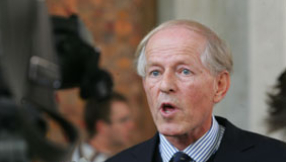Hyper-individuality and globalisation are greatest challenges to urban mission - theologian
Glenn Smith, senior associate for urban mission for the Lausanne Committee for World Evangelisation, questioned whether urban churches could “act afresh” in such an era in the latest edition of the Lausanne World Pulse.
“Hyper-individuality, the immanent frame, and the evacuation of the transcendent in the pursuit of ‘realising one’s potential in life’ present huge challenges for local congregations that want to pursue the mission of God in their communities,” he said.
“This does not at all give credence to the traditional view of secularisation which sees a decline of religion in the city because of urbanisation. Rather it has totally shifted our understanding of how our society is grounded.
“To their own peril, congregations pay far too little attention to these issues.”
Mr Smith was writing at the end of a two-year reflection within the Lausanne movement on God’s global urban mission. He said urban churches needed to follow a four-fold agenda if they were to “act again” in taking Jesus Christ to the world.
That agenda, he said, starts with the local congregation being the “structure of believability” that brings meaning to the message of the God of Jesus Christ.
“Our common life together, incarnating shalom, will be a huge ‘no’ to the perils of selfish individualism and a ‘yes’ to communities seeking public space that brings meaning to life in the face of pervasive evil and suffering,” he said.
Mr Smith said churches had a role to play in the ongoing debate over how to accommodate cultural and religious differences in the common public culture of cities, saying churches could be “voices to challenge the myth of neutrality on these themes”.
Part of the agenda, Mr Smith continued, had to concern bearing witness to Jesus Christ and His teachings, particularly in relation to poverty.
While some people believe their poverty or social status is divinely sanctioned or a factor of fate, Mr Smith said churches had to examine how poverty in cities affected worldview and how worldviews could transform poverty.
“People sense that they have no choices. A worldview is a powerful instrument in perpetuating chronic poverty,” he said.
Urban churches also have to pursue spiritual formation, church education and discipleship, he said. Christians, he maintained, were in the process of becoming mature in their love for God “for the sake of others”, while spirituality could not be divorced from the struggle for justice and care for the poor and oppressed.
“Each Christian is called to gather others to Christ,” he said.
He concluded the agenda for urban churches with the need to preach and teach “to bring together heart and head”.
He said: “To address hyper-individuality, we need to address those features of secularity and globality that “bring doom to the workaday world” and a “shutting out” of the mystery of the transcendence.
“The public proclamation of the scriptures and theological education in the Church and in academia will invite learners to a balanced spiritual life of prayer and the active life, expressed in a corporate commitment to full participation in the mission of God in the variety of our urban contexts.”













